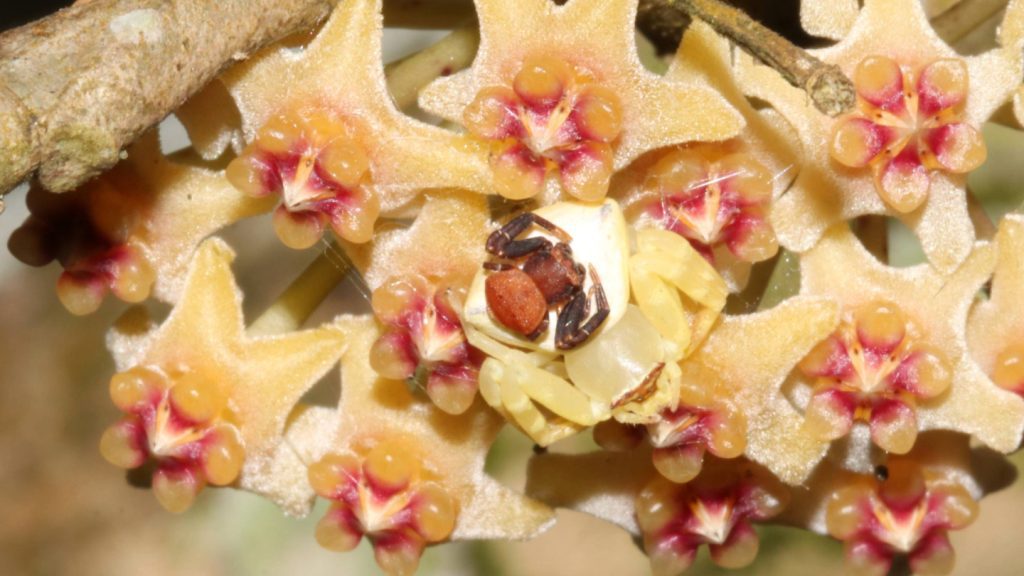Some crab spiders, especially females, have chosen to live on flowers instead of making webs. They are very good at disguising themselves. Thomisus guangxicus spiders can look like flower petals, which helps them catch insects and avoid being eaten by wasps, lizards, and birds. Now, scientists have found a male spider joining in on this type of camouflage.
The discovery could be the first time that spiders work together to hide from predators by blending in with their surroundings, ecologists Shi-Mao Wu and Jiang-Yun Gao of Yunnan University in Kunming, China, report March 1 in Frontiers in Ecology and the Environment. It suggests that some organisms’ methods for staying alive may be more surprising than we thought, Wu says (SN: 11/20/20).
In a tropical rainforest in China’s southwestern Yunnan province, Wu noticed many mosquitoes flying around a flowering vine (Hoya pandurata). When he took a closer look, he saw a male T. guangxicus spider that looked like part of the flower's reproductive structures. Wu was excited when he saw that the male spider was not alone. “It was lying on top of a larger female crab spider,” he says. Wu took a photo and continued his field work. When he returned four days later, he still saw the spiders together.
Most spiders live alone and only come together briefly to reproduce, says arachnologist Stano Pekár of Masaryk University in Brno, Czech Republic. “I’m talking about minutes or hours,” he says. “This is the first time that I have heard about two individuals coming together to imitate something.”
The most likely reason for this behavior is that male crab spiders need to be near the flowers where females spend most of their time if they want to mate. “But if a male doesn’t blend in well with the female, it might be easily seen by predators,” Sherratt says. As a result, only the male spiders whose colors match those of the females may survive. When males and females join together, they create a combined illusion, he says.
But before making any conclusions, more observations are needed to make sure that this is not just a one-time occurrence,



